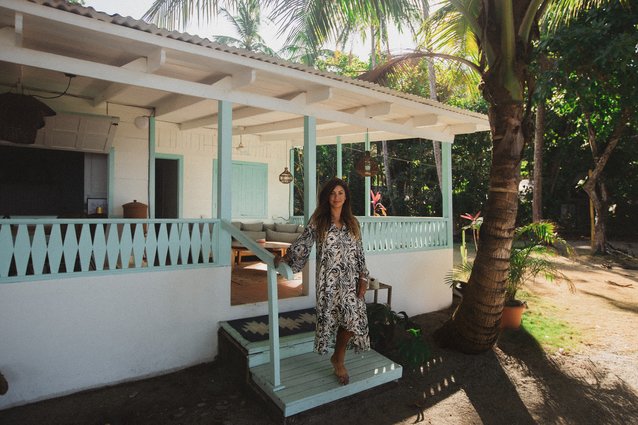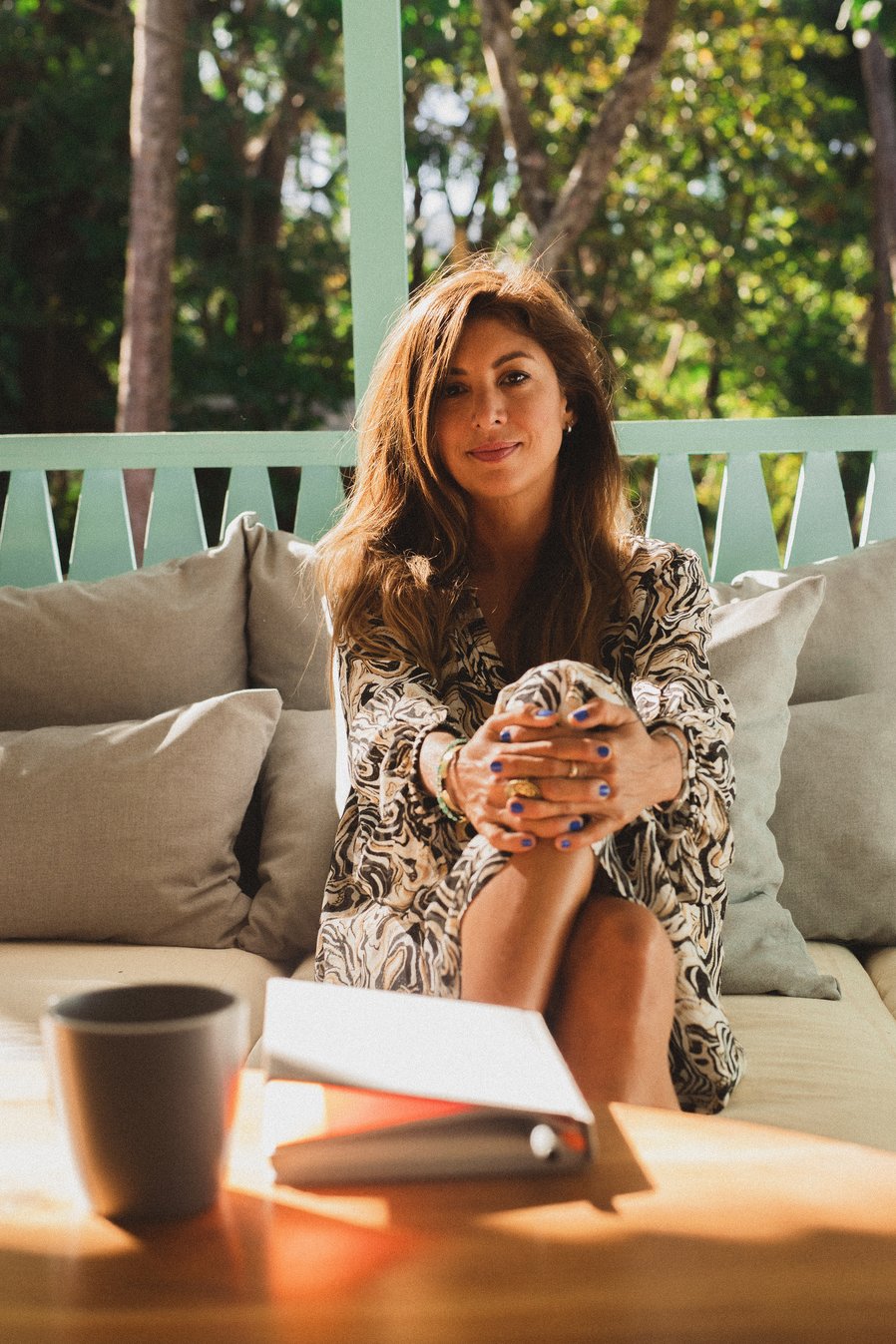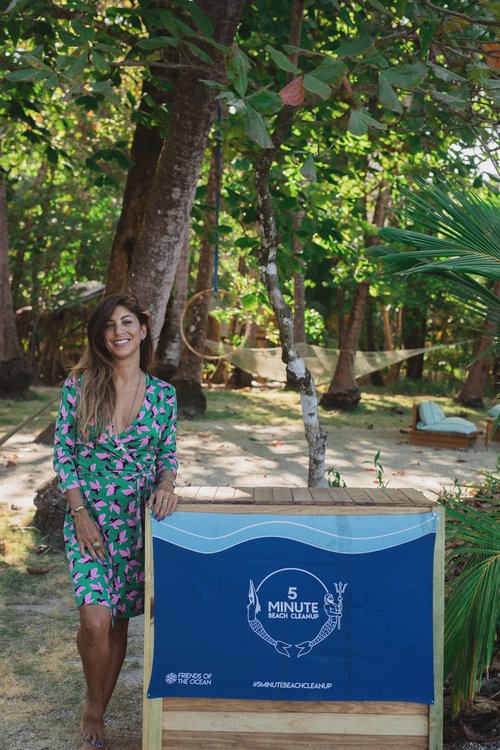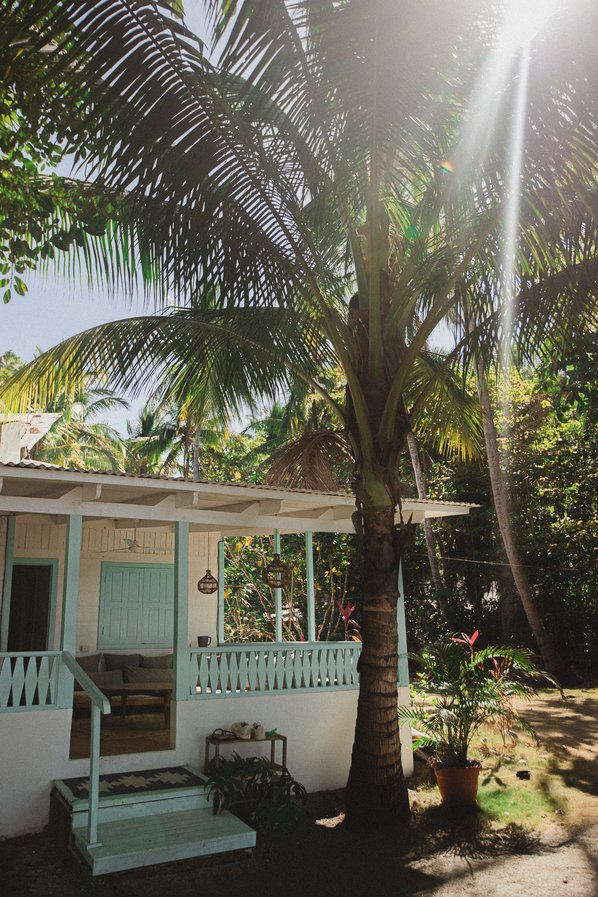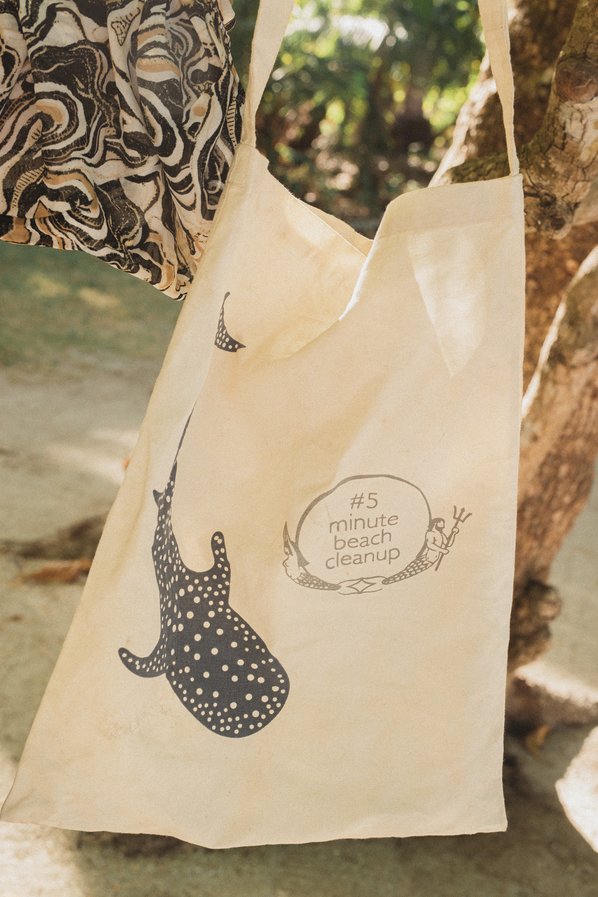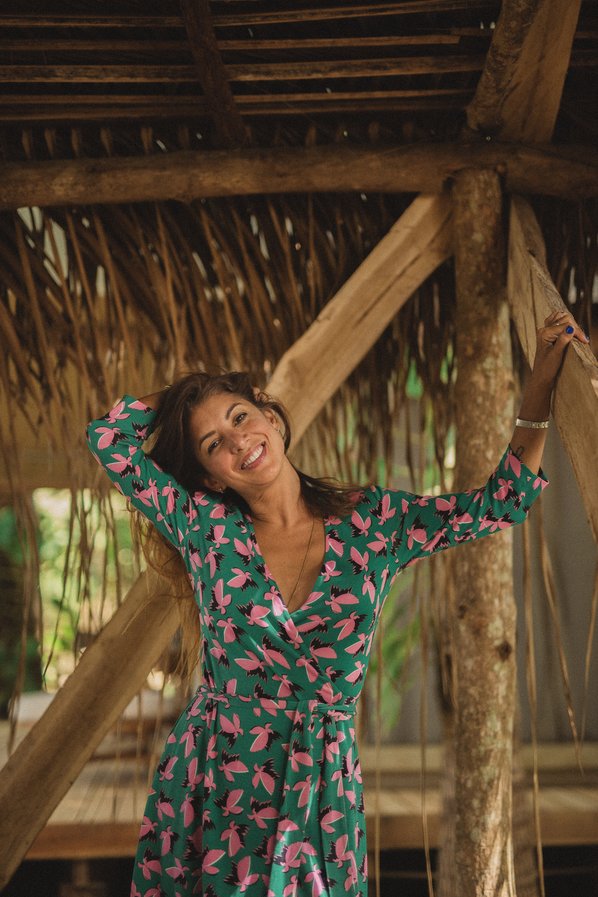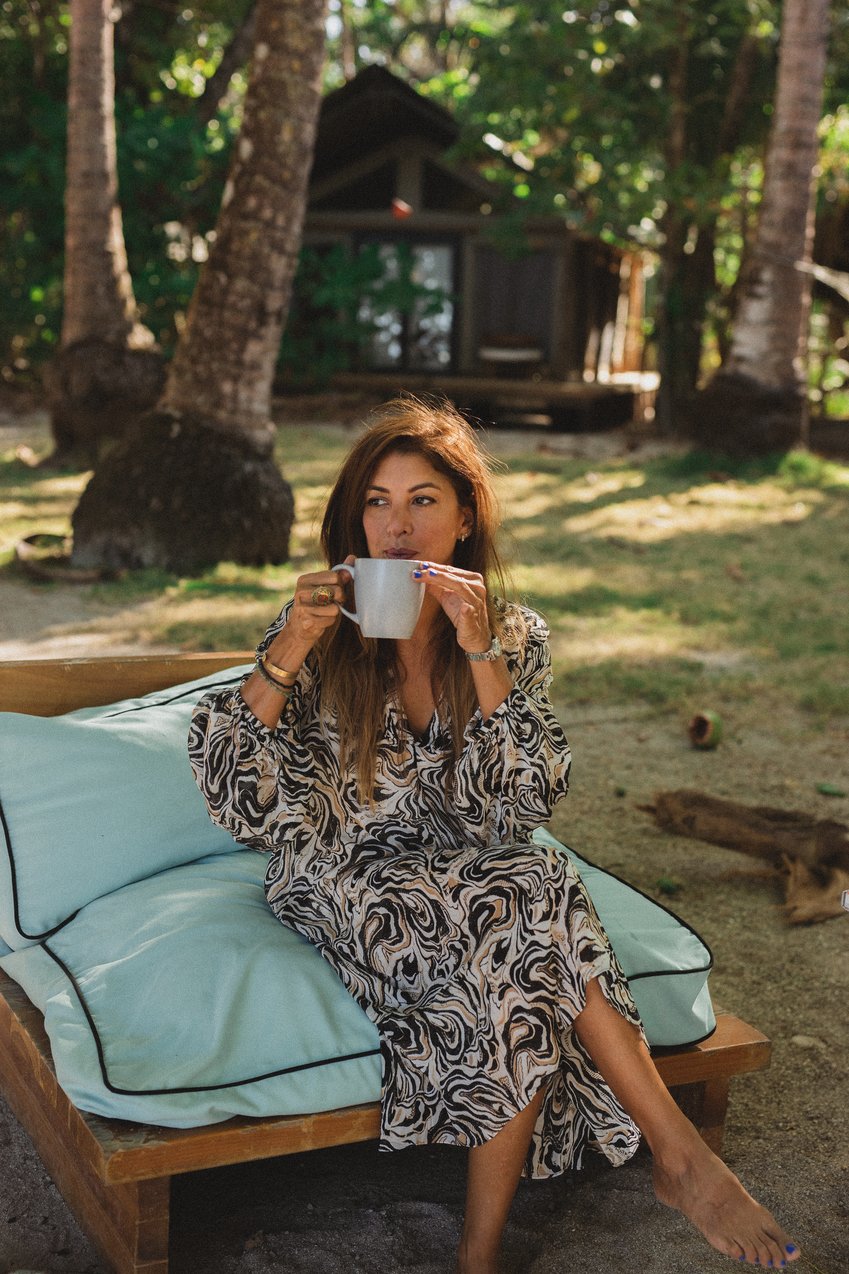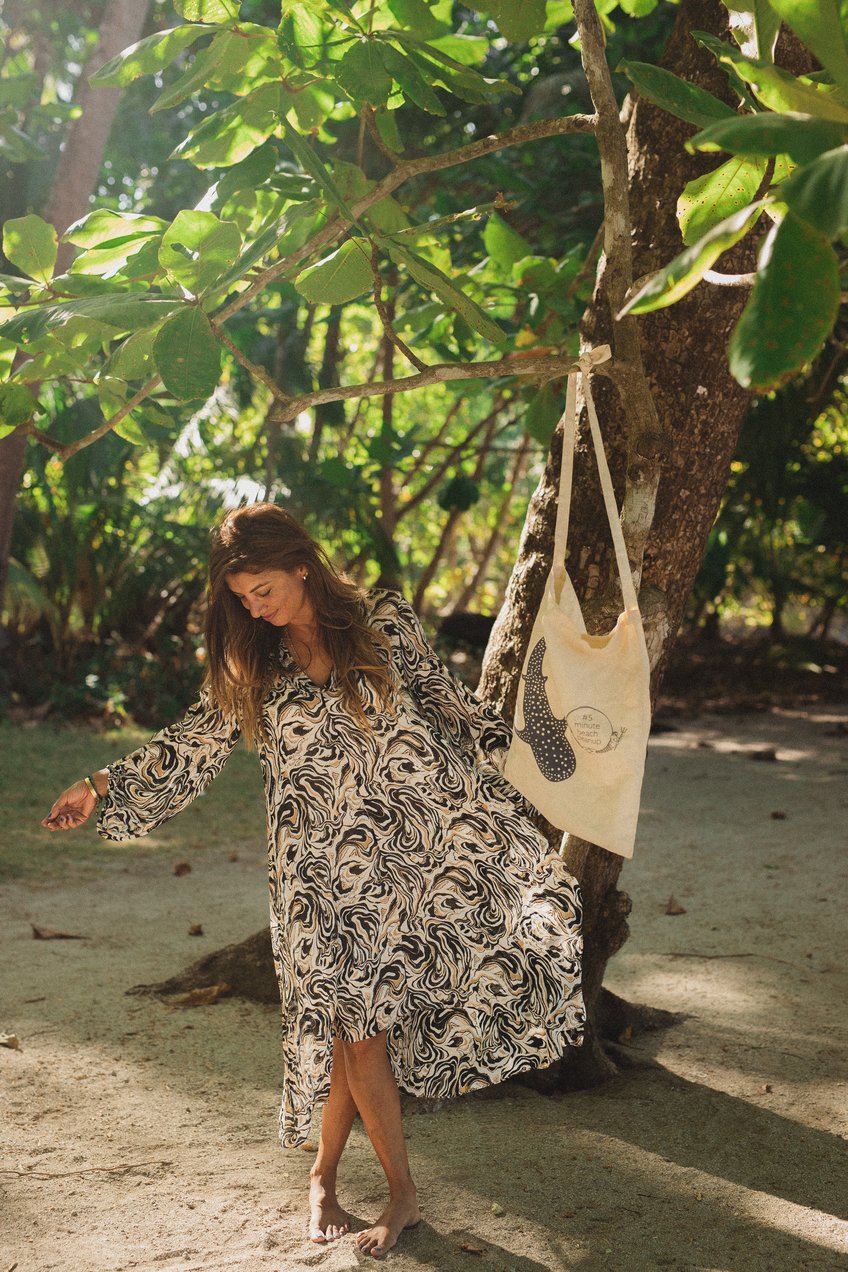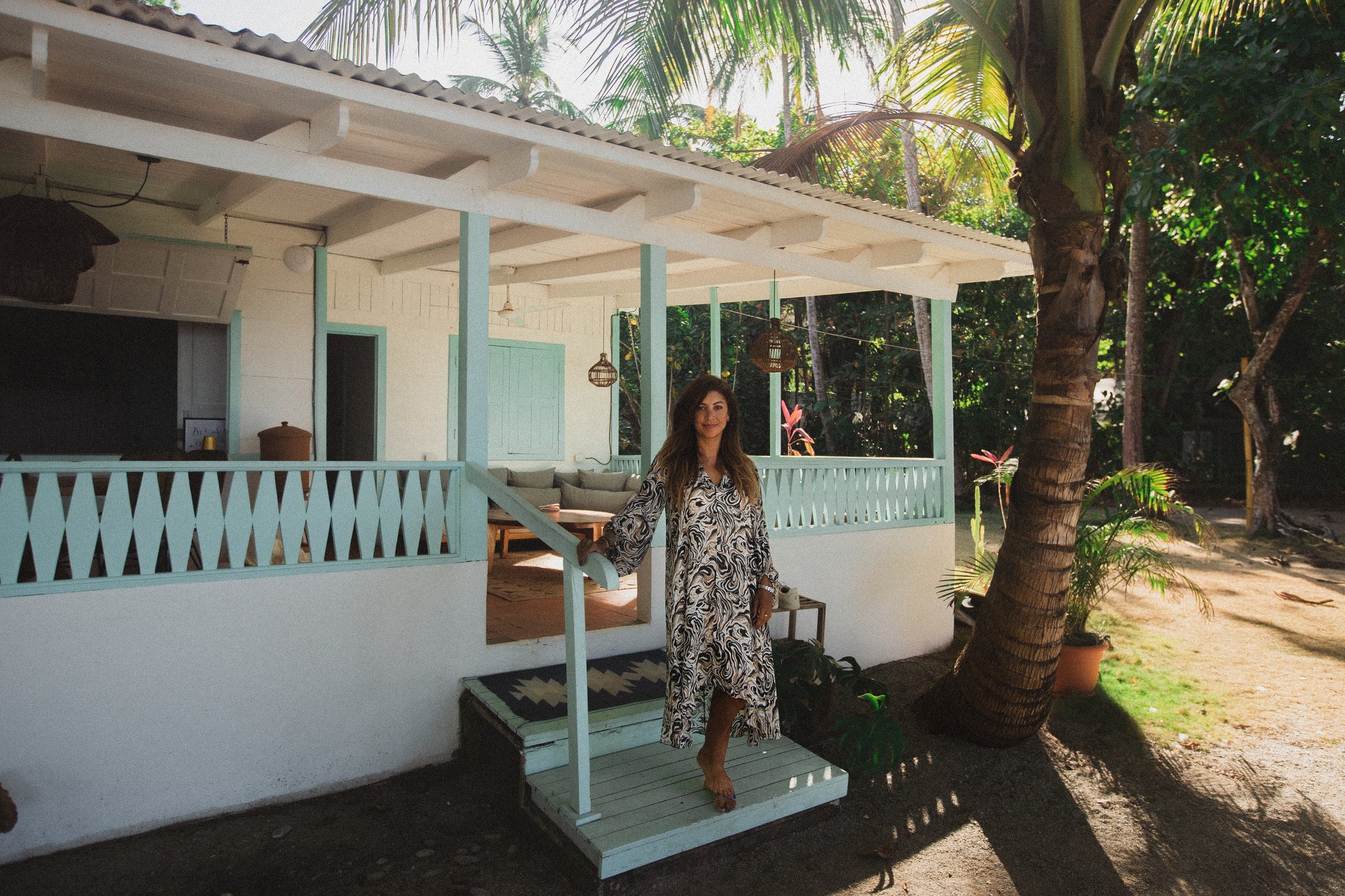
Carolina Sevilla
Being of Service is an Act of Self Love
“Not my garbage, but it’s my planet”, reads one of the signs on 5 Minute Beach Cleanup Foundation’s website. The accountability (or lack thereof) one feels when spotting a piece of garbage on the street, at the beach, in a forest, or anywhere else, is something on which Carolina Sevilla, founder of 5 Minute Beach Foundation has some thoughts.
“We can all do something about it,” she said, “It's just that we think it doesn’t correspond to us, like ‘I didn’t throw it away, so I don’t have to pick it up.’ But even if it’s not “our” garbage, it’s still our responsibility. If the government isn’t doing anything about it, the garbage stays in your space and in the air you breathe. Which ultimately makes it your garbage to worry about.”
After 10 years of working in New York as a United Nations diplomat, Carolina decided to move back to Costa Rica to learn more and do something about the plastics in the ocean. As a city person, she sensed she had been missing that connection with nature and that it made her woefully unaware of what was going on in the waters. Despite having partnered with BIONIC, a textile company that turns marine plastic into thread, for some time as a Director of Operations, Carolina felt she could create a more direct impact by being face-to-face with the problem.
The change in environment and attitude was drastic for Carolina, but a rather refreshing variety of drastic. “When you’re in New York, you get your Starbucks, throw it in the trash, and you do it every day without knowing where it may end up, you’re so disconnected from nature that you can’t see how it’s changing. When I moved to Costa Rica, I lived in a treehouse and only had four bathing suits,” she laughed, “So, it was completely different from the city, but it was so beautiful. It’s the most beautiful thing that has ever happened to me. That’s when I started taking walks and picking up plastic.”
Being of Service is an Act of Self Love
“Not my garbage, but it’s my planet”, reads one of the signs on 5 Minute Beach Cleanup Foundation’s website. The accountability (or lack thereof) one feels when spotting a piece of garbage on the street, at the beach, in a forest, or anywhere else, is something on which Carolina Sevilla, founder of 5 Minute Beach Foundation has some thoughts.
“We can all do something about it,” she said, “It's just that we think it doesn’t correspond to us, like ‘I didn’t throw it away, so I don’t have to pick it up.’ But even if it’s not “our” garbage, it’s still our responsibility. If the government isn’t doing anything about it, the garbage stays in your space and in the air you breathe. Which ultimately makes it your garbage to worry about.”
After 10 years of working in New York as a United Nations diplomat, Carolina decided to move back to Costa Rica to learn more and do something about the plastics in the ocean. As a city person, she sensed she had been missing that connection with nature and that it made her woefully unaware of what was going on in the waters. Despite having partnered with BIONIC, a textile company that turns marine plastic into thread, for some time as a Director of Operations, Carolina felt she could create a more direct impact by being face-to-face with the problem.
The change in environment and attitude was drastic for Carolina, but a rather refreshing variety of drastic. “When you’re in New York, you get your Starbucks, throw it in the trash, and you do it every day without knowing where it may end up, you’re so disconnected from nature that you can’t see how it’s changing. When I moved to Costa Rica, I lived in a treehouse and only had four bathing suits,” she laughed, “So, it was completely different from the city, but it was so beautiful. It’s the most beautiful thing that has ever happened to me. That’s when I started taking walks and picking up plastic.”
“If I see you that way, with love, I must let your grief into my heart, your story into my heart, I must stand up for you when you’re in harm’s way. What happens when we see George Floyd as our brother, or Breonna as a sister, migrant children as our own sons and daughters—what would we risk?”
Along the course of her walks—which she admits were never just five minutes—she realized that a large part of the climate issue was the public’s lack of awareness regarding the scope of the matter. Noting the need for education, she decided to turn these five-minute walks into a learning tool.
She explained to us, “We depend on the oceans. We cannot live without them. I moved from focusing on human rights to focusing on marine life because I realized we cannot save people without saving the ocean first. One out of every two breaths we take come from the ocean. That means that we’re inhaling those toxins and the health effects of consuming plastic are huge. We’re not going to be able to have kids the same way, there will be new types of cancer, even men’s penises will be smaller!” The last fact, she argued cheekily, is certainly one way to get people to snap into formation.
We could all learn a lot more about climate change, how our actions contribute to it, and how we can, as Carolina says, “Not only leave the world unharmed, but in much better condition. We don’t just want to be sustainable, we want to be regenerative!” After working with the Costa Rican government, she was able to launch several different programs including Trace Your Plastic (an internationally hosted beach walk-and-learn wherein 5MBCF takes responsibility for upcycling all the debris collected), Friends of the Ocean (an initiative that supplies clean-up equipment to hotels, restaurants, and travel agencies that guests can borrow and use to pick up debris), and Ocean Heroes (an educational program for children).
Along the course of her walks—which she admits were never just five minutes—she realized that a large part of the climate issue was the public’s lack of awareness regarding the scope of the matter. Noting the need for education, she decided to turn these five-minute walks into a learning tool.
She explained to us, “We depend on the oceans. We cannot live without them. I moved from focusing on human rights to focusing on marine life because I realized we cannot save people without saving the ocean first. One out of every two breaths we take come from the ocean. That means that we’re inhaling those toxins and the health effects of consuming plastic are huge. We’re not going to be able to have kids the same way, there will be new types of cancer, even men’s penises will be smaller!” The last fact, she argued cheekily, is certainly one way to get people to snap into formation.
We could all learn a lot more about climate change, how our actions contribute to it, and how we can, as Carolina says, “Not only leave the world unharmed, but in much better condition. We don’t just want to be sustainable, we want to be regenerative!” After working with the Costa Rican government, she was able to launch several different programs including Trace Your Plastic (an internationally hosted beach walk-and-learn wherein 5MBCF takes responsibility for upcycling all the debris collected), Friends of the Ocean (an initiative that supplies clean-up equipment to hotels, restaurants, and travel agencies that guests can borrow and use to pick up debris), and Ocean Heroes (an educational program for children).
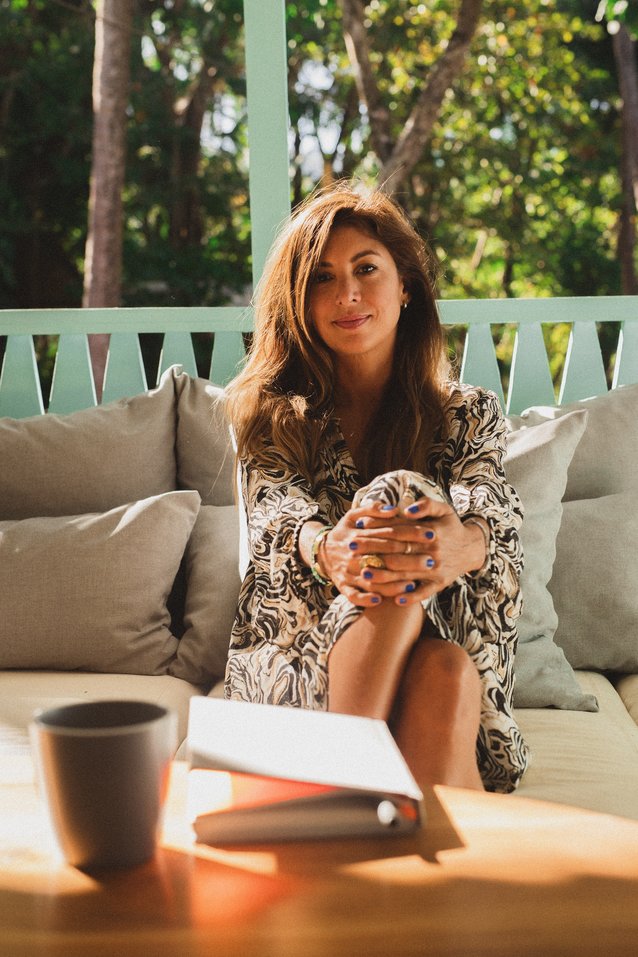
While all of the 5MBCF's programs are high-priority, Ocean Heroes is one she is particularly passionate about since its success would make climate awareness a part of the Costa Rican public school curriculum. “I believe the youth needs to know what’s going on,” she said with a slight sense of urgency. “We created Ocean Heroes with the former president of Costa Rica. We agreed that elementary school kids are at the best age to learn about this because they are so fresh and impressionable. But we have to be careful about it because they can get very anxious or depressed. You know, Greta Thunberg, when she learned about the effects of climate change, she couldn’t sleep.” If it were to be approved as part of the general curriculum, kids would grow up with that foundational knowledge, consume consciously, and bring forth more informed solutions. It would be a great win for 5MBCF, Costa Rica, and ideally, other countries would follow suit.
While all of the 5MBCF's programs are high-priority, Ocean Heroes is one she is particularly passionate about since its success would make climate awareness a part of the Costa Rican public school curriculum. “I believe the youth needs to know what’s going on,” she said with a slight sense of urgency. “We created Ocean Heroes with the former president of Costa Rica. We agreed that elementary school kids are at the best age to learn about this because they are so fresh and impressionable. But we have to be careful about it because they can get very anxious or depressed. You know, Greta Thunberg, when she learned about the effects of climate change, she couldn’t sleep.” If it were to be approved as part of the general curriculum, kids would grow up with that foundational knowledge, consume consciously, and bring forth more informed solutions. It would be a great win for 5MBCF, Costa Rica, and ideally, other countries would follow suit.
“It’s the least we can do,” Carolina said, “To throw away the garbage we see on the ground. People notice, they say thank you, and maybe they’ll pick up the next piece of garbage they see. Even I say thank you to the people who pick up garbage on the street. Being of service is an act of love for the planet and ourselves.”
This idea of summoning ancestors is more accessible than one would think. Valarie channels the energy of her grandfather, a biological ancestor, but she also sits at the feet of Black thinkers like Dr. King, James Baldwin, Audre Lorde, and bell hooks.
“It’s the least we can do,” Carolina said, “To throw away the garbage we see on the ground. People notice, they say thank you, and maybe they’ll pick up the next piece of garbage they see. Even I say thank you to the people who pick up garbage on the street. Being of service is an act of love for the planet and ourselves.”
This idea of summoning ancestors is more accessible than one would think. Valarie channels the energy of her grandfather, a biological ancestor, but she also sits at the feet of Black thinkers like Dr. King, James Baldwin, Audre Lorde, and bell hooks.
While sustainability and eco-activism might seem intimidating to those who don’t work in the field, 5 Minute Beach Clean-up has an accessible ring to it since you don’t have to be an ecologist to spend five minutes picking up trash at your local park once a week.
Donate to 5MBCF here and keep up with Carolina's life and projects on Instagram. The photographer for this shoot was Laura Castro and the location was kindly provided by Zunya.

